
Coconut Oil Benefits – All You Need To Know
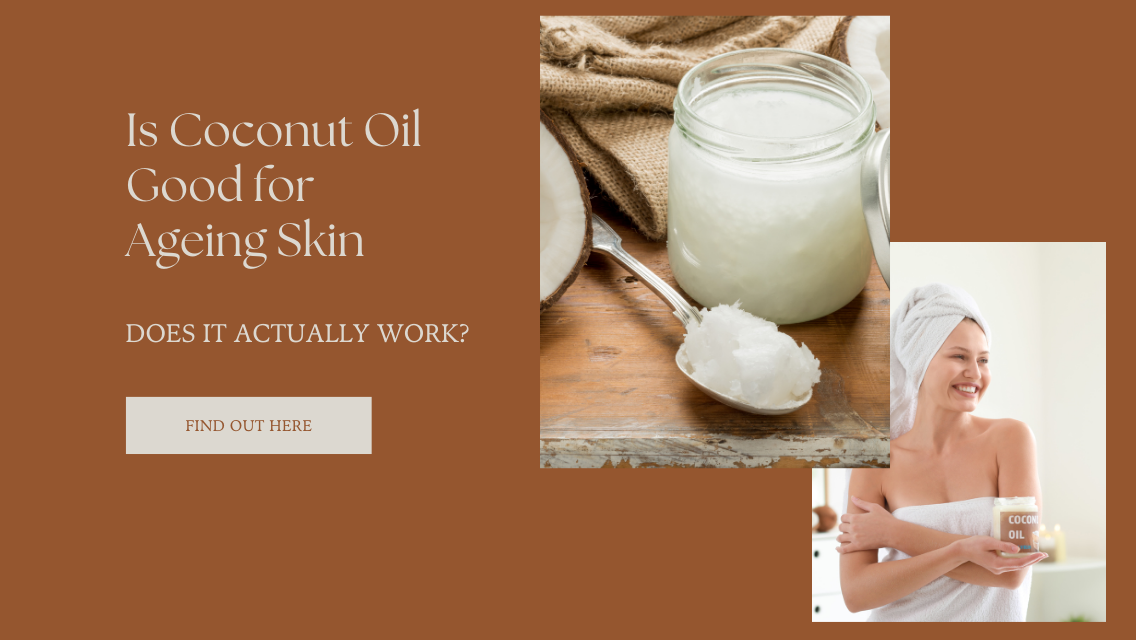
DID YOU KNOW COCONUT OIL MAY INDIRECTLY HELP WITH COLLAGEN PRODUCTION?
Coconut Oil for Ageing Skin! Indulge in the goodness of pure, natural Coconut Oil – my absolute favorite for skin, hair, and overall well-being. With a passion for all things beneficial, I can’t get enough of this wonder oil!
AND – Did you know that Coconut Oil may help indirectly help with collagen preservation? It’s true! If you’re over 40, this natural beauty elixir deserves a prime spot in your daily routine. Stay tuned as I will delve deeper into how Coconut Oil works wonders for radiant, youthful skin and how it can potentially support collagen production.
So, without any more hesitating and yardy yardy yaa, let’s delve straight into what you really want and need to know about the benefits of coconut oil. You have a lot of questions right? and I am going to try my best to select the most relevant questions I believe any woman or man would want to know
QUESTIONS & ANSWERS – COCONUT OIL BENEFITS
Are you sometimes confused about the kind, type, or how much to use whenever you hear this is good for you, that is good for you. Well, I’m here to help. I have personally been using coconut oil on my skin for a while now (along with my little poochy pug who also loves coconut oil) and I wish I had started using it sooner. Hopefully, I will be covering a lot of questions you may have, If I don’t, please feel free to comment on this post and I will respond as best I can.
CONTENT
Where Does Coconut Oil Come From and How is it Collected?
What is Coconut Oil and Which Kind of Coconut Oil is Best for My Skin?
Is It Ok To Put Coconut Oil On Your Face?
Is Coconut Oil Good for Saggy Crepey Skin?
What Happens To Skin When You Use Coconut Oil Every Day? Benefits of Coconut Oil on Skin Every Day
What Are The Proven Benefits Of Coconut Oil On Skin?
Does Coconut oil Tighten Belly Fat?
Does Coconut Oil Rebuild Collagen?
Can I Apply Coconut Oil Under The Eyes?
What Happens If You Put Too Much Coconut Oil On Your Face?
How to Use Coconut Oil for Skin
What Is The Difference Between Cold Pressed Coconut Oil and MCT Oil?
WHERE DOES COCONUT OIL COME FROM?
Coconut oil, often referred to as “liquid gold,” is derived from the meat or kernel of coconuts, the fruit of the coconut palm tree (Cocos nucifera). These trees are primarily cultivated in tropical regions with warm climates, such as Southeast Asia, the Philippines, Indonesia, India, and some parts of the Caribbean.
The process of collecting coconut oil involves several steps:
- Harvesting: Coconuts are plucked from the coconut palm tree when they are fully matured, usually after about 10-12 months of growth.
- Husking: Once harvested, the outer husk of the coconut is removed to expose the hard inner shell.
- Cracking: The hard shell is then cracked open to access the white, fleshy part known as the coconut meat.
- Extraction: There are two main methods of extracting coconut oil from the coconut meat:a. Dry processing: In this traditional method, the coconut meat is sun-dried for several days until it becomes dry and brittle. It is then manually or mechanically pressed to extract the oil.
b. Wet processing: This modern method involves grating the fresh coconut meat and then pressing it to extract the coconut milk. The coconut milk is then subjected to various separation techniques, such as fermentation, boiling, or centrifugation, to separate the oil from the water and solids.
- Purification: After extraction, the coconut oil may undergo further purification processes to remove any impurities, ensuring a higher quality end product.
- Packaging: Once the coconut oil is obtained and purified, it is packaged and ready for distribution and use in various applications, such as cooking, skincare, hair care, and more.
It’s important to note that the quality of coconut oil can vary depending on the extraction method and the freshness of the coconut used. Cold-pressed, virgin coconut oil is considered the most natural and beneficial as it retains more of the coconut’s natural nutrients and aroma.
WHAT IS COCONUT OIL AND WHICH KIND OF COCONUT OIL IS BEST FOR MY SKIN?
As I mentioned above Coconut Oil is derived from the meat of kernel coconuts, which is the fruit of the coconut palm tree. It is highly valued for its versatile uses and numerous benefits, particularly in skincare and haircare routines.
There are generally two main types of coconut oil available for skincare:
- Virgin Coconut Oil: This type of coconut oil is extracted using a cold-pressing method from fresh coconut meat without any chemical processing. It retains its natural aroma, flavor, and beneficial nutrients, making it the most preferred option for skincare. Virgin coconut oil is rich in antioxidants, lauric acid, and other essential fatty acids, which provide excellent moisturizing and nourishing properties for the skin.
- Refined Coconut Oil: Refined coconut oil, on the other hand, is obtained from dried coconut meat that undergoes a refining process, which typically involves bleaching and deodorizing. This process removes some of the natural coconut scent and flavor. While it still contains some skincare benefits, it may not offer the same level of nutrients and antioxidants as virgin coconut oil.
- Cold-Pressed Coconut Oil – A Type of Virgin Coconut Oil:- Cold-pressed coconut oil is a type of virgin coconut oil, distinguished by its extraction method. Unlike traditional methods involving high temperatures, cold-pressing ensures the coconut meat is mechanically pressed, usually with a hydraulic press, without any external heat application. This gentle process helps preserve the heat-sensitive nutrients and enzymes present in the coconut oil, resulting in a product that closely resembles its raw, natural state. Those seeking to maximize the oil’s nutritional benefits and retain its authentic coconut flavor often prefer cold-pressed coconut oil.
For skincare purposes, the best kind of coconut oil is generally COLD PRESSED VIRGIN COCONUT OIL due to its superior quality and higher content of beneficial compounds. It deeply moisturizes the skin, helps improve skin elasticity, and can even have antibacterial properties that assist in combating certain skin conditions.
However, everyone’s skin is different, and some people may find that refined coconut oil works well for them too. If you’re uncertain, it’s recommended to do a patch test on a small area of your skin before using it more widely.
When it comes to your skin’s health and well-being, opting for high-quality, virgin coconut oil is your best bet. Always ensure to purchase from reputable sources and, if possible, consider organic and cold-pressed options for the most natural and beneficial skincare experience.
Is It Ok To Put Coconut Oil On Your Face – Coconut Oil benefits
Yes, it is generally safe to use coconut oil on your face. Coconut oil has several beneficial properties for the skin, making it a popular natural option for moisturizing and nourishing the facial skin. Here are some of its potential benefits:
- Moisturizing: Coconut oil is rich in fatty acids, such as lauric acid, which can help replenish the skin’s natural moisture barrier, keeping it hydrated and supple.
- Antioxidant Properties: The oil contains antioxidants that may help protect the skin from free radical damage, which can contribute to premature aging.
- Anti-Inflammatory: Coconut oil has anti-inflammatory properties that could potentially help calm irritated skin and reduce redness or swelling.
- Antibacterial and Antifungal: It contains certain compounds that have been shown to exhibit antibacterial and antifungal effects, which may benefit individuals with acne-prone or sensitive skin.
- Skin Barrier Repair: The oil may assist in repairing the skin’s protective barrier, promoting smoother and healthier-looking skin.
However, it’s essential to consider a few factors before applying coconut oil to your face:
- Patch Test: Perform a patch test on a small area of your skin before using coconut oil on your face to ensure you do not have any adverse reactions or allergies to it.
- Skin Type: Coconut oil can be comedogenic for some individuals, meaning it has the potential to clog pores and lead to breakouts, particularly for people with oily or acne-prone skin. If you have acne-prone skin, it’s best to avoid using coconut oil on your face or use it sparingly.
- Personal Preference: Some people find coconut oil too greasy for their facial skin, while others love its moisturizing effects. It’s a matter of personal preference, so pay attention to how your skin responds.
- Time of Use: Some individuals prefer using coconut oil as a nighttime treatment, allowing it to absorb into the skin without worrying about any greasiness during the day.
If you decide to use coconut oil on your face, make sure to choose high-quality, organic, and cold-pressed virgin coconut oil for the best results. As with any new skincare product, it’s advisable to consult with a dermatologist or skincare professional, especially if you have any pre-existing skin conditions or concerns.
Is Coconut Oil Good For Saggy Crepey Skin? – Coconut oil benefits
I am personally seeing improvements already after only 2 weeks, especially on my legs, and here’s why. Coconut oil can be beneficial for saggy and crepey skin due to its moisturizing properties and potential to improve skin elasticity. It may help to temporarily plump and hydrate the skin, giving it a smoother appearance. While coconut oil can be a part of your skincare routine, it’s important to note that it may not provide dramatic, long-lasting results for saggy or crepey skin. For significant improvements, other treatments like laser therapies or medical procedures might be more effective.
To use coconut oil for saggy or crepey skin:
- Cleanse: Start by cleansing your face to remove any dirt or impurities.
- Moisturize: Take a small amount of coconut oil and warm it between your palms to liquefy it. Gently massage the oil into the areas of your skin with sagging or crepey appearance. You can use it on your face, neck, or any other body parts with similar skin concerns.
- Amount: You don’t need a large amount of coconut oil, as a little goes a long way. Start with a small quantity and adjust as needed, depending on your skin’s response.
- Frequency: How often you use coconut oil depends on your skin’s needs and how well it tolerates the oil. Some people prefer using it daily as part of their nighttime skincare routine, while others might apply it a few times a week.
- Consistency: The key to any skincare routine is consistency. For the best results, incorporate coconut oil into your skincare regimen regularly over time.
- Patch Test: If you are using coconut oil for the first time, perform a patch test on a small area of your skin to ensure you don’t experience any allergic reactions or skin sensitivities.
Keep in mind that coconut oil might not be suitable for everyone, especially those with acne-prone or oily skin, as it could potentially clog pores and worsen breakouts. If you have any concerns about using coconut oil for your skin type or specific skin condition, it’s a good idea to consult with a dermatologist before adding it to your skincare routine.
Remember that while coconut oil can provide some benefits for your skin, maintaining a healthy lifestyle, protecting your skin from the sun, and staying hydrated are also essential factors in promoting skin health and reducing the appearance of sagging or crepey skin.
What Happens To Skin When You Use Coconut Oil Every Day? Benefits of Coconut Oil on Skin Every Day?
Using coconut oil on the skin every day can have various effects, and the benefits may vary from person to person. I certainly have found it to be highly beneficial for myself, but again, everyone is different and it makes sense to try anything new with care and ease to begin with. Here are some potential outcomes and benefits of using coconut oil on the skin daily:
- Moisturization: Coconut oil is an excellent natural moisturizer due to its high content of fatty acids. When applied regularly, it can help keep the skin hydrated and prevent dryness, making it look softer and smoother.
- Improved Skin Barrier: The fatty acids present in coconut oil can support the skin’s natural barrier function, helping to protect it from environmental damage and reducing water loss.
- Antioxidant Properties: Coconut oil contains antioxidants, such as vitamin E, which can help neutralize free radicals and protect the skin from oxidative stress and premature aging.
- Skin Elasticity: Daily application of coconut oil might temporarily improve skin elasticity, leading to a plumper appearance and reducing the appearance of fine lines and wrinkles.
- Soothing Irritation: Coconut oil has anti-inflammatory properties that may help soothe irritated or inflamed skin, providing relief for conditions like eczema or psoriasis.
- Antibacterial and Antifungal Effects: Coconut oil’s natural antimicrobial properties can help combat certain bacterial and fungal skin infections.
- Gentle Makeup Remover: Coconut oil can be an effective and gentle makeup remover, especially for removing eye makeup.
- Lip Balm: Applying coconut oil to the lips daily can help keep them moisturized and prevent chapping.
- Sunburn Relief: In some cases, coconut oil may provide relief from mild sunburn and help reduce redness and peeling.
However, it’s important to note that while coconut oil offers numerous benefits, it may not be suitable for everyone. Some individuals with acne-prone or oily skin may experience clogged pores or breakouts from using coconut oil regularly.
Additionally, the degree of benefits can vary based on factors such as individual skin type, overall skin health, and the quality of the coconut oil used (preferably virgin or cold-pressed).
If you decide to use coconut oil daily on your skin, it’s recommended to do a patch test first to ensure you don’t have any adverse reactions or allergies. If you have specific skin concerns or conditions, it’s a good idea to consult with a dermatologist before incorporating coconut oil into your daily skincare routine.
What Are The Proven Benefits Of Coconut Oil On Skin?
There are several proven benefits of coconut oil on the skin based on scientific research and studies. Some of these benefits include:
- Moisturization: Coconut oil is an effective moisturizer for the skin, as it can help reduce water loss and improve hydration levels, especially for people with dry skin conditions. (Source: Dermatitis. 2004 Sep;15(3):109-16.)
- Anti-Inflammatory Effects: The presence of anti-inflammatory compounds in coconut oil may help soothe and calm irritated skin conditions, such as eczema or atopic dermatitis. (Source: International Journal of Molecular Sciences. 2018 Jan;19(1):70.)
- Antimicrobial Properties: Coconut oil contains fatty acids with antimicrobial properties, which can help combat certain skin infections caused by bacteria or fungi. (Source: Journal of Medicinal Food. 2007 Jun;10(2):384-7.)
- Wound Healing: Some studies have shown that coconut oil might aid in wound healing and skin repair due to its regenerative properties. (Source: Skin Pharmacology and Physiology. 2010;23(6):290-7.)
- Anti-Aging Effects: The antioxidants in coconut oil may play a role in reducing oxidative stress and protecting the skin from premature aging. (Source: Skin Pharmacology and Physiology. 2014;27(3):113-9.)
It’s important to note that while these benefits have been observed in studies, individual responses to coconut oil may vary, and some people with certain skin types or conditions may experience adverse reactions. It’s always recommended to do a patch test before using coconut oil extensively on your skin.
For the most up-to-date statistics and information from tests, I recommend checking reliable sources such as scientific journals and reputable dermatological websites. PubMed (www.ncbi.nlm.nih.gov/pubmed) is an excellent resource for accessing scientific research articles on coconut oil’s effects on the skin. Websites of dermatology associations and universities’ dermatology departments may also provide evidence-based information on this topic.
Does Coconut Oil Tighten Belly Fat?
Yes we see so many claims that Coconut Oil Reduces Belly Fat. I have seen claims about this too all over the internet! Maybe it’s just the overall feeling of “yes it is helping and it feels good to massage or be massaged” and let’s face it, a good old massage will also help with bowel movement which in turn will show a flatter stomach – right? However, lets delve into if or not Coconut Oil Helps with Tightening Belly Fat.
There is no scientific evidence to suggest that coconut oil specifically targets and tightens belly fat. The idea of “spot reduction,” where a specific area of the body is targeted for fat loss through the application of certain products or exercises, is a common misconception.
WEIGHT LOSS AND FAT REDUCTION
Weight loss and fat reduction occur when there is an overall calorie deficit in the body. This means that you need to burn more calories than you consume through a combination of diet and exercise. While coconut oil does contain medium-chain fatty acids that may be used for energy more efficiently than some other fats, it still provides the same number of calories per gram as other fats.
Coconut oil can be a part of a balanced diet, and some studies suggest it might have a modest effect on metabolism. However, any potential impact on weight loss would be the result of the overall dietary and lifestyle changes, rather than coconut oil alone.
To effectively reduce belly fat or lose weight in general, consider adopting a healthy and balanced diet, engaging in regular physical activity, and incorporating strength training and cardiovascular exercises. Reducing overall body fat through these lifestyle changes can lead to fat loss, including in the abdominal area. As with any significant dietary or lifestyle changes, it’s advisable to consult with a healthcare professional or registered dietitian for personalized guidance and recommendations.
WHAT IS THE DIFFERENCE BETWEEN COCONUT OIL AND MCT OIL?
In summary, MCT oil is a concentrated form of specific medium-chain fatty acids, while coconut oil is a natural oil that contains a mix of fatty acids, including medium-chain fatty acids. Both have their uses and potential benefits, but the choice between the two depends on individual dietary and lifestyle preferences
MCT (medium-chain triglyceride) oil is derived from coconut oil but is a more concentrated form of medium-chain fatty acids. MCT oil contains a higher proportion of medium-chain fatty acids, specifically caprylic acid (C8) and capric acid (C10), which are believed to have various health benefits, including potential effects on weight loss.
Some studies suggest that MCT oil may have a slight impact on metabolism and may be less likely to be stored as body fat compared to long-chain fatty acids found in other dietary fats. It is believed that MCTs are rapidly metabolized and converted into energy by the liver, which could potentially increase energy expenditure and contribute to weight loss.
MCT OIL Is Not A Magic Solution for Spot Belly Reduction
However, it’s important to understand that MCT oil is not a magic solution for spot reduction of belly fat or targeted fat loss. Like coconut oil, the overall effect of MCT oil on body composition and weight loss would depend on a person’s overall calorie intake, energy expenditure, and lifestyle choices.
Weight loss and fat loss still require a caloric deficit, which means burning more calories than you consume through a balanced diet and regular physical activity. Adding MCT oil to your diet without adjusting other factors is unlikely to result in significant fat loss or belly fat reduction on its own.
As with any dietary supplement, it’s essential to use MCT oil in moderation and as part of a well-rounded, healthy diet and lifestyle. If you have specific health concerns or are considering using MCT oil for weight loss, it’s best to consult with a healthcare professional or a registered dietitian to determine the most appropriate and effective approach for your individual needs.
Does Coconut Oil Rebuild Collagen?
The big question! I have read mixed answers and reviews about this question. And, It’s probably one of the most asked questions too. Some say, Coconut Oil contains Collagen, Some say it improves Collagen. Now rather than lead you on a wild goose chase, I came across the following study which has quite an effect on collagen. This test was done using Virgin Coconut Oil. Here’s just a snippet Pepsin-soluble collagen showed a significant increase in VCO- treated wounds, indicating a higher collagen cross-linking. You can read the article Here:- Effect of topical application of virgin coconut oil on skin components and antioxidant status during dermal wound healing in young rats
However, there is limited scientific evidence to suggest that coconut oil directly promotes collagen production in the skin. Collagen is a structural protein that plays a crucial role in maintaining the skin’s firmness, elasticity, and overall youthful appearance. While collagen production is primarily regulated by the body’s own processes, some components of coconut oil may contribute to overall skin health and indirectly support collagen.
1. Moisturization: Coconut oil is a natural emollient, and its ability to penetrate the skin and retain moisture can help keep the skin hydrated. Well-hydrated skin is less prone to damage and may better support collagen health.
2. Antioxidant Content: Coconut oil contains antioxidants, such as vitamin E, which can help neutralize free radicals. Free radicals are unstable molecules that can cause oxidative stress and damage collagen, leading to premature aging. By reducing oxidative stress, coconut oil may indirectly support collagen preservation.
3. Anti-Inflammatory Properties: Coconut oil has anti-inflammatory properties that can help soothe and calm irritated skin. Chronic inflammation can contribute to collagen breakdown, so minimizing inflammation can be beneficial for collagen health.
4. Skin Barrier Support: The fatty acids in coconut oil can enhance the skin’s natural barrier function. A strong skin barrier helps protect against external stressors and maintains skin hydration, potentially supporting collagen integrity.
While these properties of coconut oil may help overall skin health, it’s essential to understand that the scientific evidence regarding coconut oil’s direct role in collagen production is limited. Collagen synthesis is a complex biological process influenced by various factors, including genetics, age, and hormonal changes.
Can I Apply Coconut Oil Under The Eyes? Coconut oil benefits
Yes, you can apply coconut oil under the eyes. Coconut oil is considered safe for use on delicate skin under the eyes, and many people use it as a natural and gentle moisturizer in that area. The skin under the eyes is thin and sensitive, and keeping it moisturized can help reduce the appearance of dryness and fine lines.
Benefits of using coconut oil under the eyes:
- Moisturization: Coconut oil is a natural emollient that can help hydrate and nourish the skin under the eyes, keeping it soft and supple.
- Antioxidant Properties: Coconut oil contains antioxidants like vitamin E, which may help protect the skin from free radicals and oxidative stress.
- Soothing Effects: The anti-inflammatory properties of coconut oil may help soothe and calm any puffiness or irritation in the under-eye area.
- Makeup Removal: Coconut oil can also be used as a gentle makeup remover, effectively removing eye makeup without excessive rubbing.
When applying coconut oil under the eyes:
- Use a small amount: A little goes a long way with coconut oil. Start with a tiny amount and gently pat it onto the skin using your ring finger, which applies the least pressure.
- Avoid getting it in the eyes: Be cautious not to get coconut oil directly into your eyes, as it can cause temporary discomfort.
- Patch test: If you have never used coconut oil on your skin before, it’s a good idea to do a patch test on a small area of your arm to ensure you do not have any allergic reactions or skin sensitivities.
- Time of use: Some people prefer using coconut oil under their eyes as part of their nighttime skincare routine, allowing it to absorb overnight.
While coconut oil works well for many people, it may not be suitable for everyone. If you have particularly sensitive skin or a history of allergies, it’s essential to test it first and discontinue use if you experience any adverse reactions. As with any new skincare product, it’s best to consult with a dermatologist or skincare professional if you have any specific concerns or skin conditions.
What Will Happen If I Apply Coconut Oil On My Face Overnight?
Applying coconut oil on your face overnight can have various effects, and the results may vary depending on your skin type and individual response. Here are some potential outcomes of using coconut oil as an overnight treatment:
- Intense Moisturization: Coconut oil is a rich moisturizer, and leaving it on your face overnight can deeply hydrate and nourish your skin. You may wake up with softer, smoother, and more supple skin.
- Soothing and Calming: Coconut oil’s anti-inflammatory properties may help soothe and calm irritated or red skin, reducing redness and inflammation by morning.
- Makeup Removal: If you apply coconut oil to remove makeup before going to bed, it can effectively dissolve and lift away makeup, dirt, and impurities from your skin.
- Potential Breakouts: Coconut oil has the potential to be comedogenic for some individuals, meaning it can clog pores and lead to breakouts, especially for people with acne-prone or oily skin. If you are prone to breakouts, using coconut oil overnight might not be suitable for your skin.
- Greasy Feel: Coconut oil can be relatively greasy and may not fully absorb into the skin, especially if applied in excessive amounts. Some people may find this uncomfortable during sleep.
- Risk of Stains: Coconut oil can leave stains on bedding or pillowcases, so it’s advisable to use an old pillowcase or place a towel on your pillow if you plan to apply coconut oil overnight.
tips for using coconut oil on your face overnight:
- Patch Test: If you are using coconut oil for the first time on your face, do a patch test on a small area of your skin to check for any allergic reactions or sensitivities.
- Use a Small Amount: A little coconut oil goes a long way. Avoid applying an excessive amount, especially if you have oily or acne-prone skin.
- Consider Your Skin Type: If you have oily or acne-prone skin, consider using coconut oil as a spot treatment or trying it out on a small area before using it all over your face.
- Remove Excess: After applying coconut oil, you can gently blot off any excess oil with a soft tissue to reduce the greasy feel.
As with any new skincare product or routine, it’s always a good idea to consult with a dermatologist or skincare professional if you have specific skin concerns or conditions. They can provide personalized advice and recommendations based on your skin’s unique needs.
What Happens If You Put Too Much Coconut Oil On Your Face?
If you put too much coconut oil on your face, it can lead to several potential issues, especially for individuals with certain skin types. Here are some possible consequences of using an excessive amount of coconut oil on your face:
- Clogged Pores: Coconut oil is considered comedogenic, which means it has the potential to clog pores. Applying too much coconut oil on your face, especially if you have acne-prone or oily skin, can increase the risk of pore blockage, leading to blackheads, whiteheads, or breakouts.
- Greasy Feel: Coconut oil is an emollient and can leave a greasy residue on the skin, especially when applied in large quantities. Some people might find this uncomfortable or unpleasant, especially when using it during the daytime.
- Risk of Allergic Reactions: Using too much coconut oil or applying it on sensitive skin can increase the likelihood of developing allergic reactions or skin sensitivities. It’s essential to perform a patch test before applying coconut oil extensively on your face.
- Staining: Excessive coconut oil can transfer to bedding or pillowcases, potentially leaving stains and causing discomfort during sleep.
- Risk of Acne Flare-Ups: For individuals prone to acne, using too much coconut oil may exacerbate existing breakouts or trigger new ones due to its comedogenic nature.
To optimize the benefits of coconut oil on your face, follow these tips:
- Use Sparingly: Apply a small amount of coconut oil to your face, focusing on areas that need moisturization or targeted treatment.
- Consider Your Skin Type: If you have oily or acne-prone skin, use coconut oil sparingly or consider alternative, non-comedogenic oils for facial use.
- Time of Application: If you prefer using coconut oil during the daytime, consider applying it lightly or mixing it with your regular moisturizer to reduce the greasy feel.
- Patch Test: Before applying coconut oil on your entire face, perform a patch test on a small area of your skin to check for any adverse reactions or sensitivities.
- Nighttime Use: Some individuals find it more comfortable to use coconut oil as an overnight treatment to allow it to absorb into the skin without concerns about greasiness during the day.
As with any skincare product, individual responses can vary, so it’s essential to listen to your skin and adjust your routine accordingly. If you have specific skin concerns or conditions, it’s best to consult with a dermatologist or skincare professional for personalized advice and recommendations.
How to Use Coconut Oil for Skin & Hair – Top Tips How To USE
Using coconut oil for the skin can be a versatile and beneficial addition to your skincare routine. Here are five top tips on how to use coconut oil for the skin and five other products you can mix with coconut oil for maximum benefit:
Top Tips for Using Coconut Oil for Skin
- Moisturizer: Apply a small amount of coconut oil on clean, damp skin as a natural moisturizer. Gently massage it into your face and body for soft, hydrated skin. It’s especially effective after a shower when the skin is still slightly damp to lock in moisture.
- Makeup Remover: Use coconut oil to remove makeup gently and effectively. Apply a small amount on a cotton pad or your fingertips and massage it onto your face to dissolve makeup. Wipe away with a clean cotton pad or rinse with water.
- Lip Balm: Dab a small amount of coconut oil onto your lips for instant hydration and to prevent chapping. It can serve as a natural lip balm to keep your lips soft and smooth.
- Body Scrub: Mix coconut oil with some granulated sugar or coffee grounds to create a DIY body scrub. Gently massage this exfoliating mixture on your body to slough off dead skin cells and reveal smoother skin.
- Cuticle Oil: Rub a small amount of coconut oil onto your cuticles to nourish and moisturize them. Regular application can help keep your cuticles healthy and prevent dryness.
Five Products to Mix with Coconut Oil for Maximum Benefit:
- Essential Oils: Add a few drops of your favorite essential oil, such as lavender, chamomile, or tea tree oil, to coconut oil to create a customized aromatherapy body oil with added skin benefits.
- Shea Butter: Mix melted coconut oil with shea butter for an ultra-moisturizing body butter. Shea butter is rich in vitamins and fatty acids that complement coconut oil’s hydrating properties.
- Honey: Blend coconut oil with raw honey for a nourishing and hydrating face mask. Honey has natural antibacterial properties and can help soothe and soften the skin.
- Aloe Vera Gel: Combine coconut oil with aloe vera gel for a soothing after-sun treatment. This mixture can help calm sunburned skin and provide relief from irritation.
- Turmeric: Mix coconut oil with a pinch of turmeric to create a brightening and anti-inflammatory face mask. Turmeric’s antioxidant properties can enhance the skin-nourishing effects of coconut oil.
Always do a patch test before using any new mixture on your skin, especially if you have sensitive skin or allergies. While coconut oil and these additional ingredients can benefit many people, individual responses may vary. If you have specific skin concerns or conditions, consult with a dermatologist or skincare professional for personalized advice.
Top Tips for Using Coconut Oil for Hair
Using coconut oil for hair can help nourish and condition your locks. Here are five top tips on how to use coconut oil for hair and five other products you can mix with coconut oil for maximum benefits:
Top 5 Tips for Using Coconut Oil for Hair:
-
Pre-Shampoo Treatment: Apply coconut oil to dry hair as a pre-shampoo treatment. Work the oil into your hair, focusing on the ends and any damaged areas. Leave it on for at least 30 minutes or overnight for deep conditioning before shampooing.
-
Leave-In Conditioner: After washing your hair, apply a small amount of coconut oil to damp hair as a leave-in conditioner. It helps seal in moisture, prevent frizz, and add shine to your hair.
-
Hair Mask: Create a hair mask by mixing coconut oil with other natural ingredients like honey, yogurt, or mashed avocado. Apply the mixture to your hair and scalp, leave it on for 20-30 minutes, then rinse thoroughly for soft and nourished hair.
-
Split Ends Treatment: Rub a small amount of coconut oil between your fingertips and apply it to the ends of your hair to help reduce the appearance of split ends and improve hair manageability.
-
Scalp Massage: Warm up coconut oil slightly and use it to give yourself a relaxing scalp massage. Massaging coconut oil into your scalp can help improve circulation, promote hair growth, and alleviate dryness.
Five Products to Mix with Coconut Oil for Maximum Benefits:
-
Argan Oil: Mix coconut oil with argan oil to create a potent hair serum that helps tame frizz, add shine, and protect your hair from heat styling damage.
-
Rosemary Essential Oil: Add a few drops of rosemary essential oil to coconut oil for a scalp-nourishing blend. Rosemary oil is believed to stimulate hair growth and improve scalp health.
-
Aloe Vera Gel: Combine coconut oil with aloe vera gel for a soothing and hydrating hair mask. This mixture can help restore moisture to dry and damaged hair.
-
Egg: Mix coconut oil with beaten eggs for a protein-rich hair mask. The combination can strengthen hair strands and promote healthy hair growth.
-
Honey and Lemon: Create a clarifying hair mask by mixing coconut oil with honey and a few drops of lemon juice. This mixture can help remove product buildup and balance the scalp’s pH.
Always apply coconut oil to damp or dry hair, depending on the treatment or styling preference. Remember to use coconut oil in moderation, as a little goes a long way. If you have any allergies or scalp conditions, perform a patch test before applying any mixture to your entire head. For personalized advice or if you have specific hair concerns, consult with a hairstylist or hair care professional.
Conclusion:
Incorporating coconut oil into your skincare and hair care routines can offer a range of benefits, thanks to its moisturizing, antioxidant, and soothing properties. As a natural emollient, coconut oil helps keep the skin hydrated, making it an excellent choice for soft and supple skin. Its anti-inflammatory compounds can also provide relief for irritated skin conditions, making it a versatile and gentle option for many.
When using coconut oil, remember that a little goes a long way, and it’s essential to do a patch test, especially if you have sensitive skin or allergies. While coconut oil is generally safe and well-tolerated, individual responses can vary. Additionally, those with acne-prone or oily skin may want to use coconut oil sparingly or explore non-comedogenic alternatives.
For maximum benefits, consider incorporating coconut oil into your skincare routine as a natural moisturizer, makeup remover, lip balm, or body scrub. Mixing it with essential oils, shea butter, honey, or aloe vera gel can create customized blends tailored to your specific needs.
In hair care, coconut oil serves as an effective pre-shampoo treatment, leave-in conditioner, hair mask, and split ends treatment. Mixing it with argan oil, rosemary essential oil, eggs, or honey and lemon can enhance its effects and address various hair concerns.
Overall, embracing coconut oil as part of your beauty regimen can contribute to healthier, nourished skin and hair. As with any new product or ingredient, it’s essential to understand your skin and hair’s unique requirements and consult with professionals for personalized recommendations. Embrace the natural goodness of coconut oil and unlock its full potential for a radiant and confident you.
Thank You For Reading – Sue @ Soolyfe
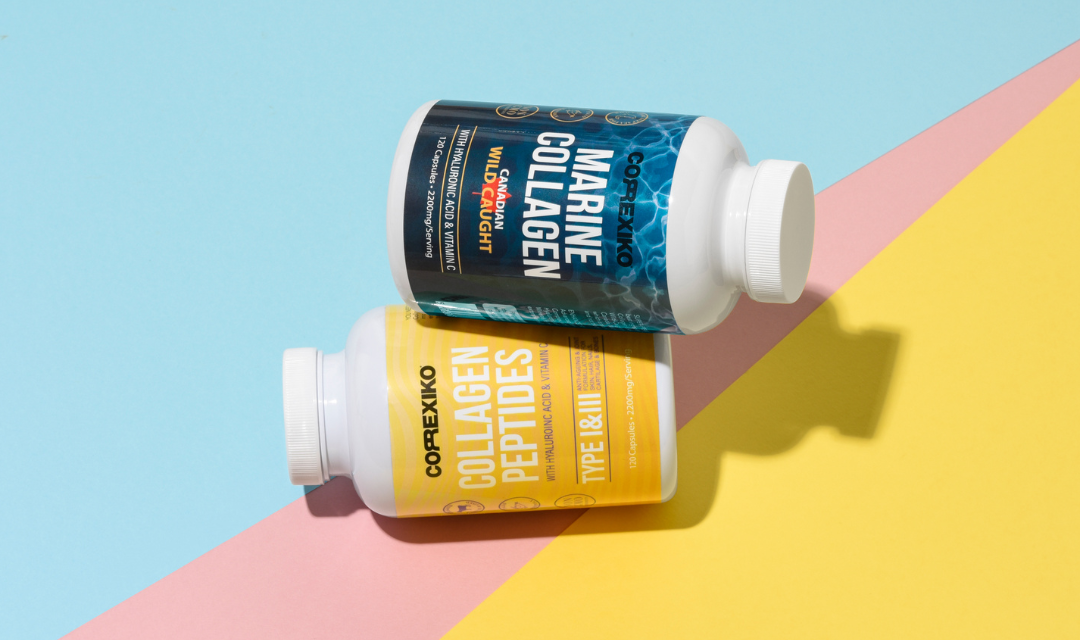
How Collagen Improved My Life After 45 | Collagen Health
Collagen is something I take every day since I hit my mid 40s. I should have started taking it long before, but unfortunately,
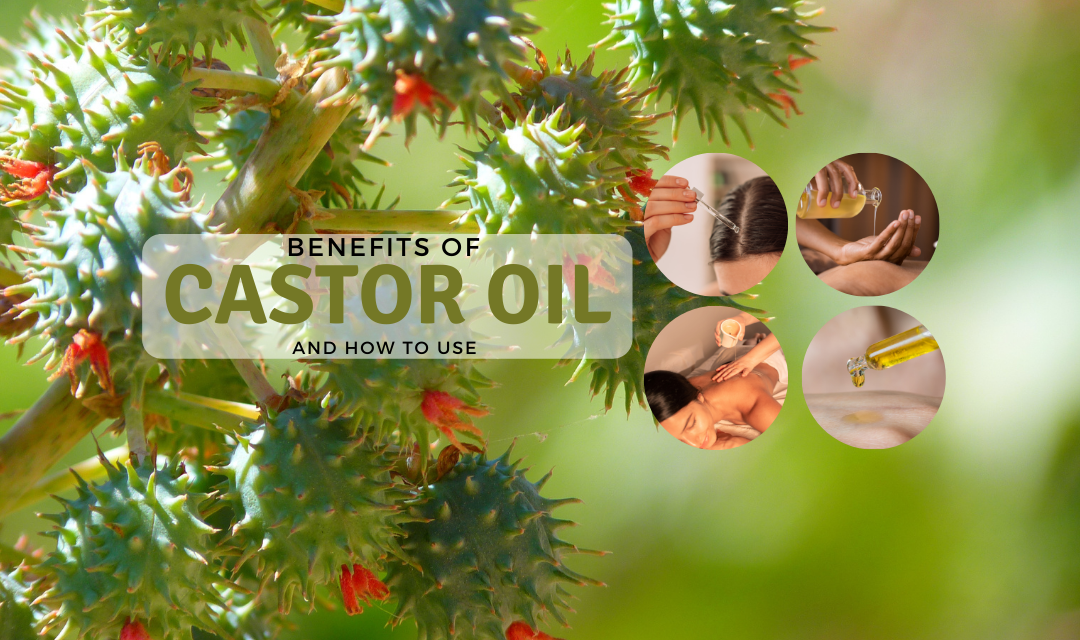
The Benefits of Castor Oil And How To Use
Unlock the Secrets of Castor Oil: Discover the Benefits for Humans and Pets. From nourishing the skin to promoting hair growth, relieving joint discomfort, and supporting pet wellness, castor oil is a natural marvel. Explore the science, learn how to use it, and embrace a holistic approach to well-being

Menopause Mavericks: Mastering Self-Care for a Vibrant Life
WELCOME TO THE MENOPAUSE IT'S YOUR LUCKY TIME OF LIFE Welcome to the wild and...

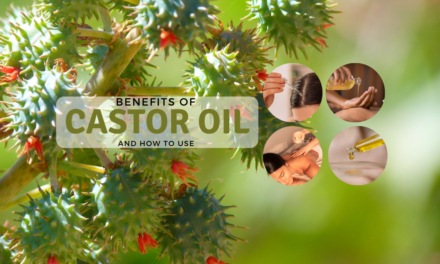
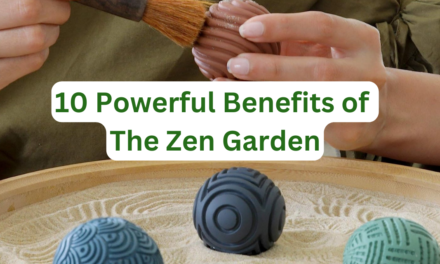


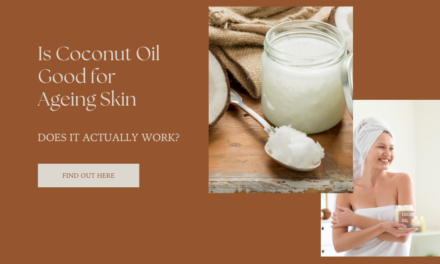
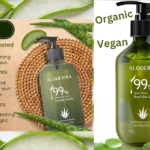






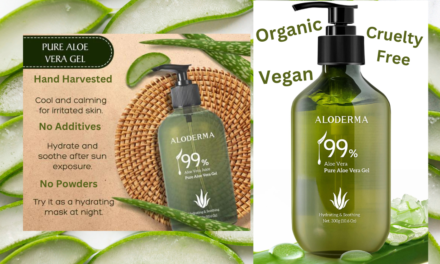
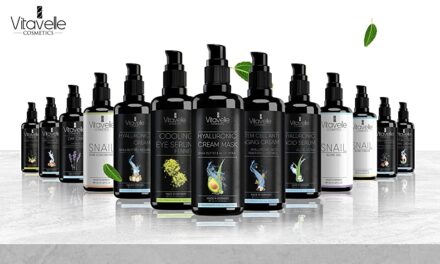
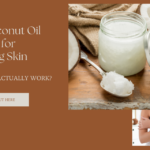



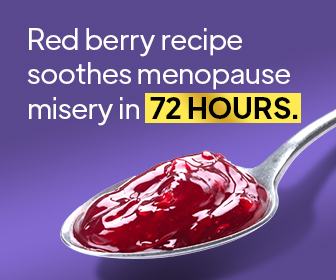

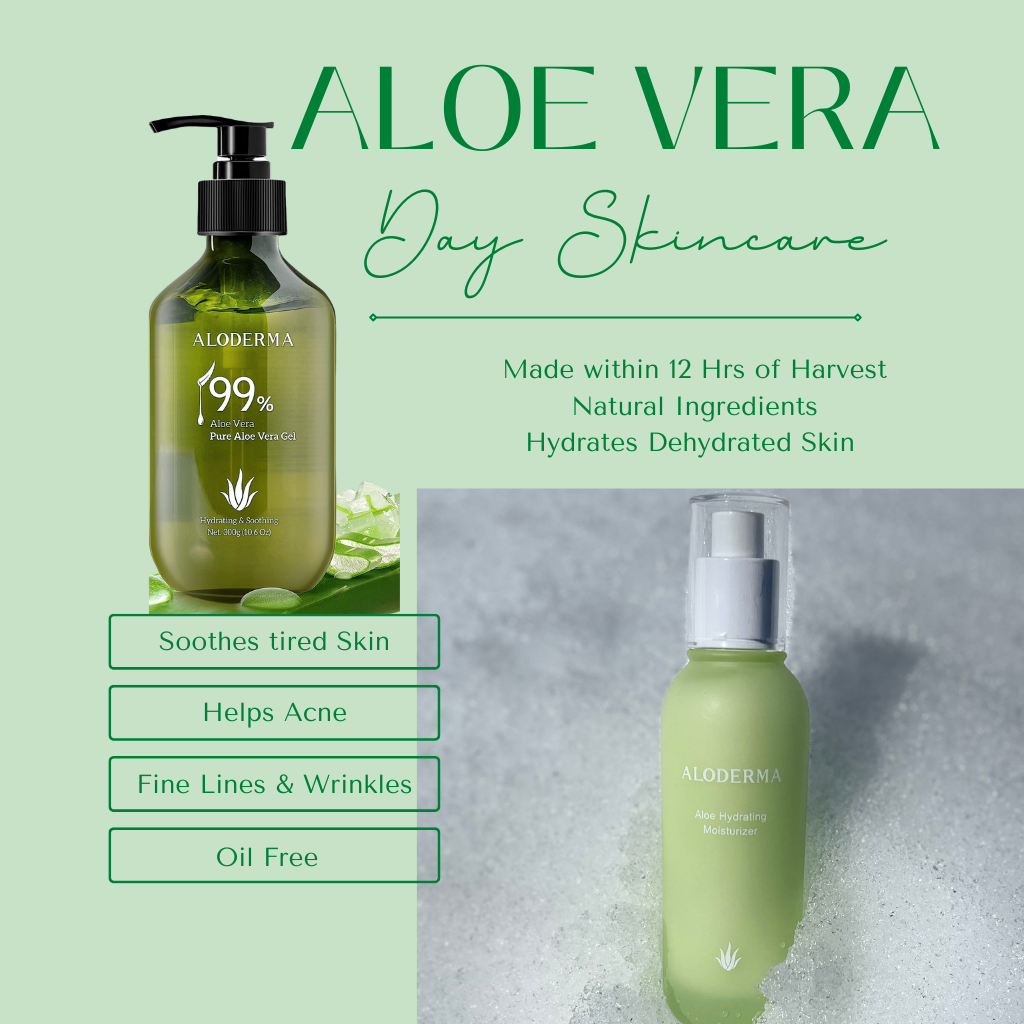
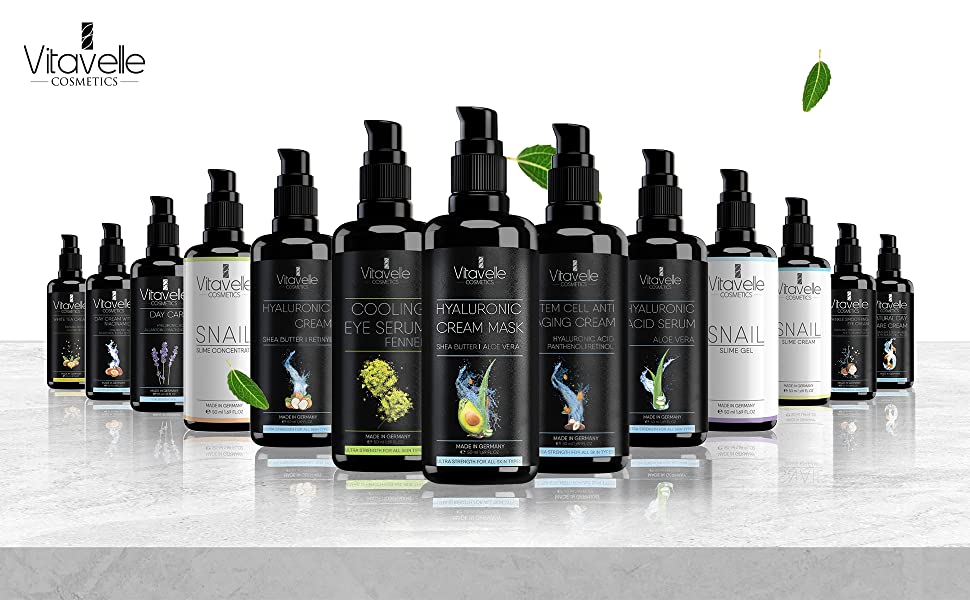
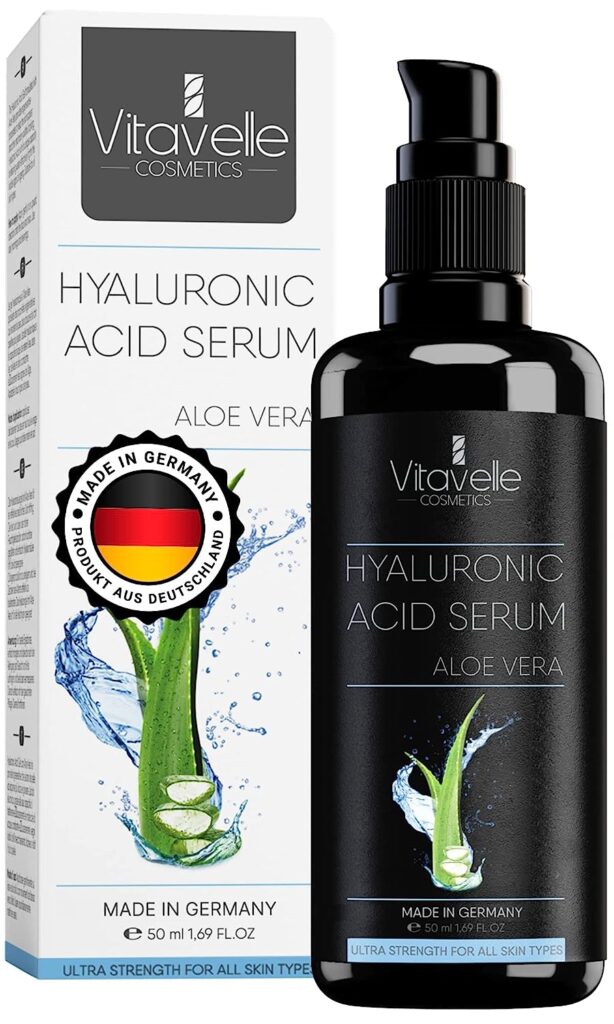

0 Comments